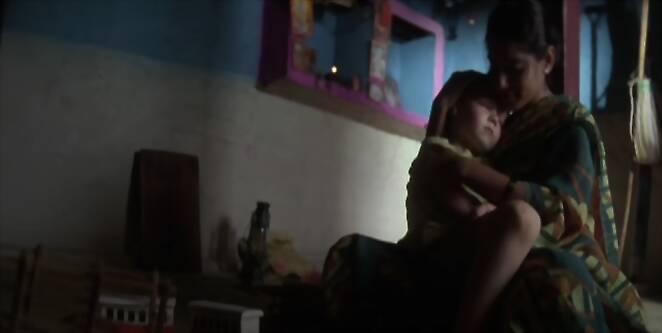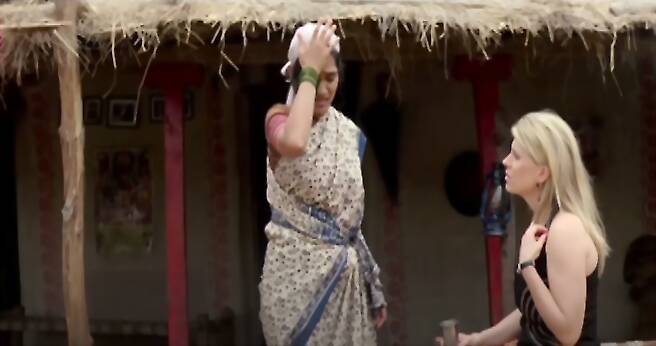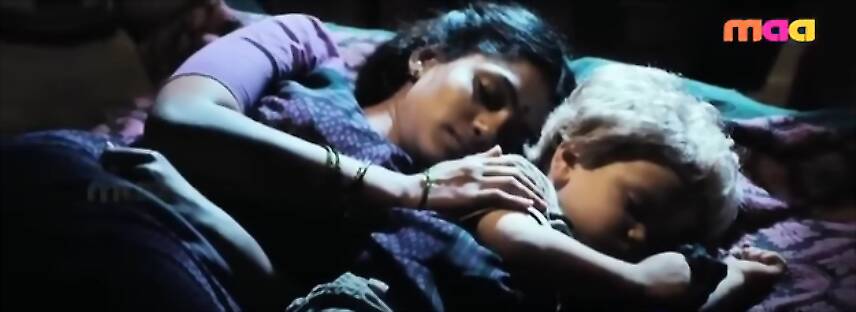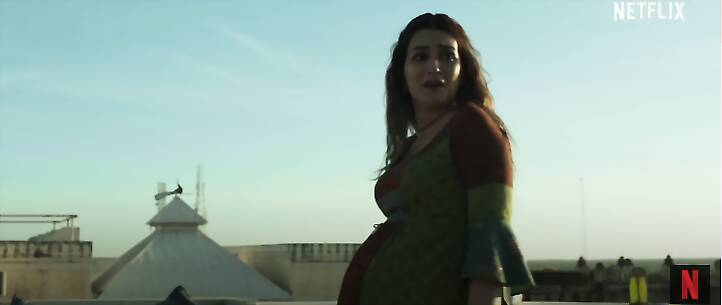
views
In this weekly column, Reel Retake, we compare the original film and its remake. Beyond highlighting the similarities, differences and measuring them on the success scale, we aim to discover the potential in the storyline that spurred the thought for a newer version and the ways in which a remake could possibly offer a different viewing experience. And if that is the case, analyse the film.
In focus this week is Marathi drama Mala Aai Vhhaychy and its Telugu and Hindi remakes Welcome Obama and Mimi.
What is Mala Aai Vhhaychy about?
Mary (Stacy Bee) visits India in search of a surrogate mother. She finalises Yashoda (Urmila Kanetkar) to bear her child seeing she is healthy and experienced. Meanwhile, we learn that Yashoda is already a mother to Surekha, who is physically challenged and living separately in a care facility. Yashoda needs money for proper medical attention of her daughter and a deal is brokered. She becomes a surrogate for Mary and gets pregnant. Mary’s life now gets tied to Yashoda’s for nine months during which she learns that the baby she is carrying may be deformed. Fearing she will have to bring up a child who is not perfectly healthy and sound, Mary abandons Yashoda during the last stage of her pregnancy and flies off abroad. She even suggests that Yashoda drops off the child in an orphanage and offers her some money for the same. Yashoda denies and is left with another child to take care of.
Luckily, Krishna is born healthy. Since he has blonde hair and a white face, many in the village treat him differently. Years pass by and Krishna and Yashoda form a close bond. He talks of airplanes and Yashoda secretly knows she cannot fulfil his dreams.

Miles away, Mary comes to know that her son was born healthy. Now, she decides to get him back with her. Back in India, she confronts Yashoda years after leaving her pregnant and stakes her claim on the baby. Yashoda refuses to part with Krishna.
Who then has the legal right over the baby? The woman who has blood relations with him or the one who has borne and nurtured him? Mala Aai Vhhaychy (I Want To Be A Mother) rounds off as a realistic drama that invests in relationships, motherhood and legal and emotional aspects of surrogacy practice.
Wherein lies the potential?
Commercial surrogacy had become quite popular in India after it was legalised in early 2000s. It involves financially compensating the surrogate mother for carrying and delivering a child on someone else’s behalf. Fertility clinics started coming up and agents sought poorer women from rural areas in this practice. Many foreign couples used to abandon the surrogate half way through the maternity period leaving her with no legal recourse as the industry was unregulated and exploited women, their bodies and choices. The agent had no onus and was running blindly after money. Mala Aai Vhhaychy takes root in this context and makes for a hard-hitting drama about nature, nurture and the legal rights of a mother and her surrogate.
The basic plot is thought provoking and promising. The story unfolds its various facets– expectation, joy, betrayal, loneliness, love and sacrifice– with nuances at each turn and is shot in a very simplistic manner. This allows the viewer to invest in the story and empathise with the surrogate mother and her helplessness. In the midst of struggles and emotional push and pull, Urmila Kanetkar showcases various aspects of motherhood with bravery. She is distant from the baby during her pregnancy but becomes possessive once Krishna is born. Everytime Yashoda encounters a crisis, there is depth and sincerity in Urmila’s acting and that makes the film heavy duty. It is Urmila who shoulders this rollercoaster ride throughout and the camera just captures her in various moods. Two scenes of her emotionally breaking down are stellar.
Mary is introduced to us as a finicky and selfish woman right from the start and when she abandons Yashoda and the child, it does not come as a surprise. Years later, when she returns to reclaim Krishna, we see that Mary is still acting on impulse. Stacy also embraces her character with finesse and her various shades are fun to watch and enjoy. It is ridiculous to see at times how easily she can detach from the situations. Meanwhile, the child actor appears confounded and quiet in most scenes as he embodies the identity crisis his cross-cultural roots have bestowed on him.

Yashoda’s companion Ganpath (Vivek Raut) lightens the mood and adds humour to the film. He is also the manifestation of every Indian who marvels at the sight of a ‘gora’ (foreigner) and their way of living. In the latter half, he shows emotional range as things gets serious.
As subtext, Mala Aai Vhhaychy also comments on the class distinction between the rich and the poor, and, in turn, the West and the East. Inequality is personified in the scenes where Mary and Yashoda are living together in a village hut and are still distant. There are many scenes as such that starkly point out how lack of resources breeds an environment of exploitation.
The two remakes– Welcome Obama and Mimi
In 2013, Mala Aai Vhhaychy was first remade as Welcome Obama in Telugu. Urmila revived her role as Yashoda. Veteran filmmaker Singeetam Srinivasa Rao handles the weight of this social drama with care. An additional track is introduced here wherein Yashoda runs off to the city with Krishna, fearing Lucy (Rachel Lewis) will grease the palms of the police and use her influence to take away the child. In the city, a comedy track awaits that functions as a distraction from the main storyline. It also stretches the film quite a bit. The over-the-top comical additions don’t add value but offer a detour from the serious nature of the story. A scene where Yashoda opens up to Ganpath near the water banks and accepts to let go of Krishna in the hope for a better future for him is shot in one take. It stands out in Welcome Obama as Urmila furthers our interest in her selfless character Yashoda. How surrogates are duped and agents persistently exploit them is more defined in Welcome Obama. The songs in the Telugu remake are certainly better, lighten the mood and are shot beautifully.

Mimi released in 2021 and is filmed in the digital format. It initiates us with a 2013 setting but does not come across as a film set in the time. But that is easily forgotten as there are bigger woes in performances and screenplay. It adapts the main storyline of a young woman agreeing to become a surrogate for a wealthy couple but burdens itself with insipid humour. Pankaj Tripathi as Bhanu is an additional character who is distracting right from the word go. Instead of sincerity, Mimi is constantly travelling back and forth between loud emotions, cranky humour and melodrama, rushing towards an end. It robs the story of its emotional essence and Kriti simply fails to leverage this once-in-a-lifetime performance opportunity. Mimi agrees to be a surrogate for money to fund her Bollywood dream, but her emotional attachment to the newborn isn’t justified in the story progression or how her lively character is sketched. Plus, there’s too much chaos and no realism. The music by AR Rahman does not blend in the film as it did in the original.

Success meter
Welcome Obama has its shortcomings but since Urmila knows the character she is playing, the flavour of the story is retained. She even goes beyond her original act in some scenes. Mimi, on the other hand, is shallow in emotional range and Pankaj’s straight-faced humour attempt does not sit well at all. From the village, the movie has shifted to the city but the new setting does not lend any novelty. The Hindi version also trivialises the surrogacy angle, which is exploitation in the name of motherhood. Mimi could have done well with a better cast or by simply sticking to the original screenplay instead of just basing itself on all the good parts and not using the best parts of Mala Aai Vhhaychy at all.
Read all the Latest News, Breaking News and Coronavirus News here.

















Comments
0 comment